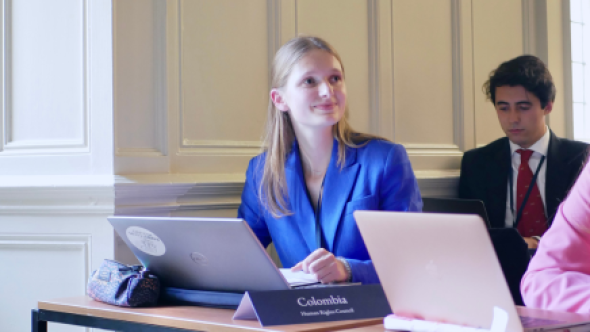I joined the MUN Society Belgium (MSB) in 2023. It's an association that brings together students from several Belgian universities to take part in competitive mock United Nations conferences. We are a group of 23 students with very different and complementary profiles. We come from both the Dutch-speaking and French-speaking parts of Belgium, and we follow different studies (law, medicine, political science, management engineering).
During our training with MUN Society Belgium, we learn to develop our "soft skills", i.e. we learn how to speak in public, to debate, to negotiate, and so on. It's also thanks to our extensive alumni network that we benefit from their knowledge and expertise in developing these skills. These are extremely important for conference participation.
